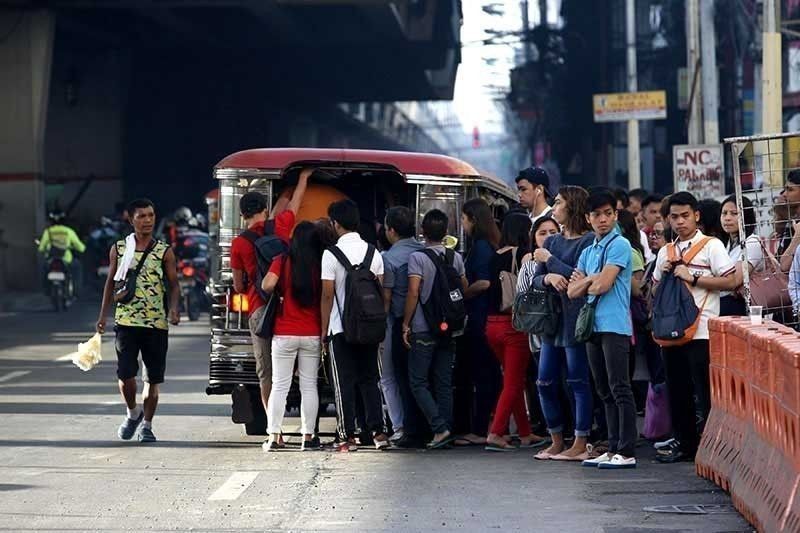Workers hope SONA includes freedom of association, job security

MANILA, Philippines — Upholding freedom of association and ending contractual labor are among the key workers' issues that labor groups hope will be included in President Ferdinand "Bongbong" Marcos Jr.'s second State of the Nation Address on Monday, coalition All Philippine Trade Unions said.
The groups held a joint press conference on Wednesday to lay down workers' demands as Marcos prepares to speak before a joint session of Congress to report on government programs and to set the administration's legislative agenda.
Often portrayed as communists or as being anti-business when they assert their rights, Rene Magtubo of Nagkaisa Labor Coalition said that workers' demands are all based on basic rights like the right to a livable wage and to security of tenure.
"And most of all, the right to organize. That is the most basic right and if workers do not exercise it, all the other rights are set aside," he said in Filipino. "Workers cannot bargain by themselves, they cannot strike by themselves."
Marcos has ordered the creation of a panel that will look into reported violations of the freedom of association and the right to organize, but groups like APTU have repeatedly pointed out that workers and employers do not have a seat at that table.
"There should be representatives from labor, government and employers to discuss in a holistic manner how to address extrajudicial killings, red-tagging and harassment of labor organizers," Magtubo also said.
Working conditions
Women Workers United, meanwhile, called for an end to violence and harassment at the workplace as they called on the government to ratify International Labour Organization 190, which acknowledges that women and girls are more likely to be victims of gender-based violence and recognizes the need for inclusive and gender-responsive workplaces.
"For the longest time, women have been at a disadvantage when it comes to job security," Jacq Ruiz of WWU and Kilusan Ng Manggagawang Kababaihan said. She said many are in contractual jobs and paid piece-rate. Many are also in precarious work and often end up in the informal sector because of the gender pay gap, she also said.
"The P20 per kilo of rice that he promised, that is also what workers want," she also said, adding that the high prices have added to the economic burden of women workers, who are also often expected to make ends meet at home.
While there have been campaigns to raise the minimum wage and to have it apply nationwide, labor groups and advocates have also been calling for "living" wages, or pay that will allow workers to set aside money for emergencies, for leisure and for investments.
Workers groups have been calling for wages of P1,100 a day and will continue that campaign, Jerome Adonis of Kilusang Mayo Uno said. He said that there have been measures in Congress proposing wage increases in response to rising prices. While these are welcome, he said, "workers cannot wait a long time for that to happen."
Contractualization
Groups also said that they hope the Security of Tenure bill — passed by a previous Congress but vetoed by then President Rodrigo Duterte —— will be mentioned at Marcos' SONA and that the proposal will be certified urgent.
Meant as a way to hire more workers during periods of high demand, contractualization has deprived workers of their rights as well as of mandated benefits and is a practice in the private as well as public sector.
Ferdinand Gaite, national president of government employees' group COURAGE, said that 770,000 of 2.4 million government workers are contractual, or are "Job Order/Contract of Service" workers.
"They have no job security. They're paid less, they don't have [Government Service Insurance System] or Pag-IBIG," he said. "They're like disposable workers and can be removed or demoted at any time."
Apart from the lack of job security and access to benefits, contractual workers are also deprived of avenues to assert their rights, Adonis said.
"Technically, if you are a contractual worker, you cannot orghanize a union. You cannot join a union," he said.
- Latest
- Trending

































